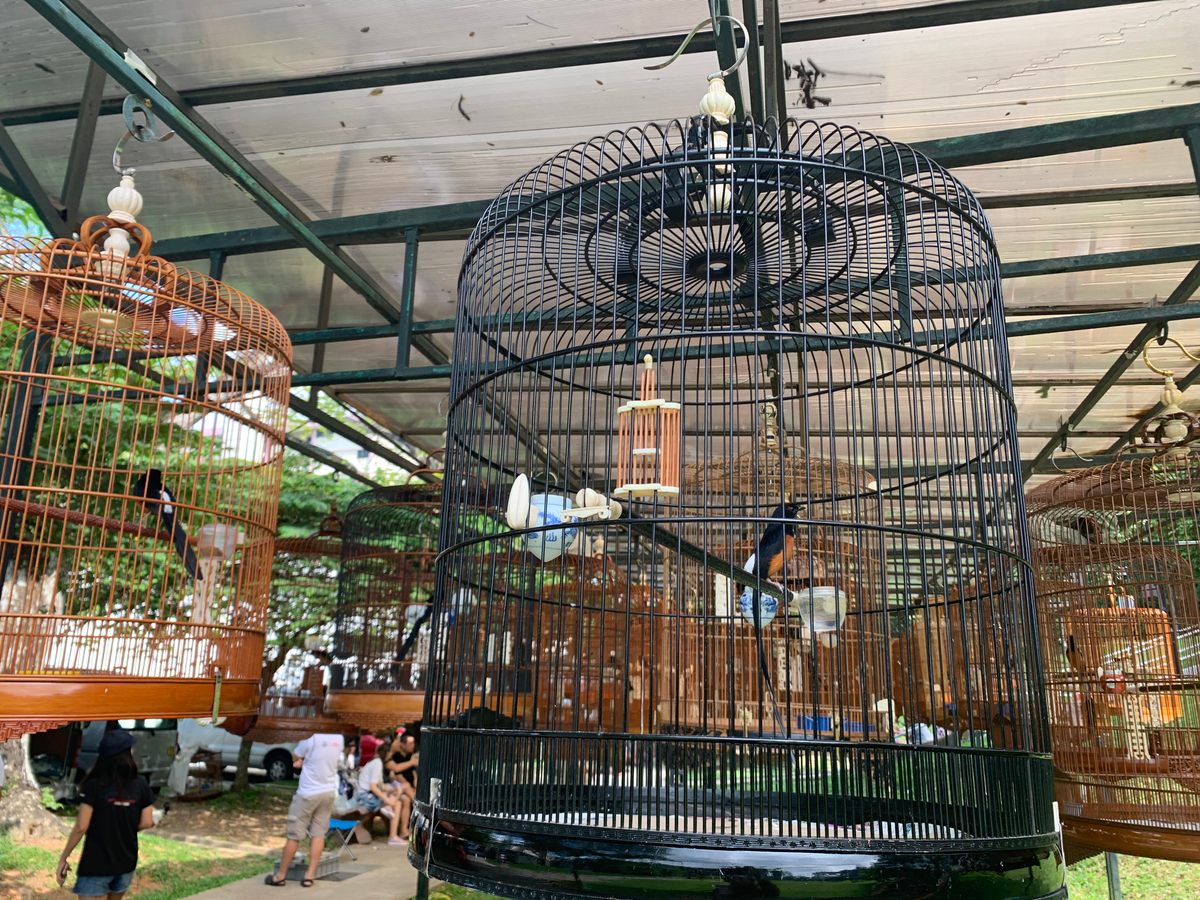Bird breeder's lung disease: Signs and symptoms; how bird droppings, feathers can damage your lungs
Your love for birds could be slowly damaging your
lungs and putting you at risk of respiratory failure. The cases of bird breeder's lung disease are on rise in the recent years and the disease is common in people who feed birds or pigeons, pet store employees and poultry workers, according to experts. Also known as Avian Hypersensitivity Pneumonitis, this condition can cause symptoms like shortness of breath, cough, fever, chest tightness and fatigue. Repeated and prolonged exposure to bird dropping, dust and feathers can cause irreversible damage to lungs over a course of many years and lead to chronic respiratory failure.
The disease is difficult to diagnose but in recent years with more awareness it is getting better.
Bird breeder's lung disease: warning signs; how bird droppings can damage lungs(Pixabay)
"The site of people feeding birds and pigeons in their balconies or windows or terraces at home, at religious places like temples and mosques and at various traffic intersections is very common in India. However, what these individuals may not realize is that this seemingly harmless activity can have detrimental effects on their respiratory health," says Dr Kamran Ali, Sr. Consultant, Lung Transplant & Thoracic Surgery, Marengo Asia Hospitals Faridabad
Although the prevalence of bird breeder's lung disease is not well documented, but it is believed to be a growing concern. According to the ILD registry in India, exposure to bird droppings and feathers was the reason for HS in 21% cases.
The odds of developing HP (Hypersensitivity Pneumonitis) as compared to other types of ILD (Interstitial lung disease) was the highest in patients exposed to birds, followed by moulds, air-conditioners and air-coolers.
What is bird breeder's lung disease?
"Bird breeder's lung or Bird Fancier’s disease, also known as Avian Hypersensitivity Pneumonitis, is a respiratory disease caused by exposure to bird droppings, feathers, and dust. The disease is commonly found among people who work in close proximity to birds such as bird owners, pet store employees, and poultry workers. Hypersensitivity Pneumonitis is a type of disease of the lung parenchyma (Interstitial Lung Disease- ILD) which causes scarring and fibrosis of the lungs due to repeated inhalation of an airborne antigen. Multiple environmental factors are associated with development of hypersensitivity pneumonitis, and one of them happens to be exposure to birds," says Dr Ali.
Causes of Bird breeder's lung disease
"Bird breeder's lung disease is caused by the inhalation of avian antigens, which can cause an immune response in susceptible individuals. The antigens are found in bird feathers, droppings, and dust," says Dr Ali.
Symptoms of Bird breeder's lung disease
The symptoms of bird breeder's lung disease include shortness of breath, cough, fever, chest tightness and fatigue, says Dr Ali.
"The symptoms usually develop over a period of several months to years and can be difficult to diagnose.
Persistent, low-level exposure may lead to gradual damage to the lungs with symptoms becoming more pronounced after the lung damage is profound. The scarring and fibrosis of lungs eventually leads to failure of lungs to deliver oxygen to the blood stream leading to chronic respiratory failure. Such patients may become dependent on oxygen from external sources like a cylinder or concentrator to maintain normal oxygen levels in their blood," adds Dr Ali.
Treatment of Bird breeder's lung disease
Prevention is the most effective approach to managing bird breeder's lung disease. The most suitable way to prevent disease caused by bird droppings is to stop feeding and breeding birds.
"Individuals who work with birds or own birds as pets should be aware of the risk of developing bird breeder's lung disease. Proper precautions, such as wearing protective equipment and regularly cleaning bird cages and surrounding areas, can help prevent or minimize exposure to avian antigens," says the expert.
"In the event of someone developing this disease, they should avoid further exposure to birds and their droppings. Early diagnosis and treatment are crucial for managing the disease and preventing further lung damage. In some cases, medication such as corticosteroids may be prescribed to reduce inflammation in the lungs," he adds.
"Lung transplantation may be required in severe cases. Lung transplantation is a treatment option for end-stage lung disease, including bird breeder's lung disease, where both the irreversibly damaged lungs are replaced by a pair of new and healthy donor lungs. Our team has performed lung transplants for several cases of bird breeder's disease in India. However, it is a complex and risky procedure that requires careful consideration and evaluation by a multidisciplinary team," concludes Dr Ali.















